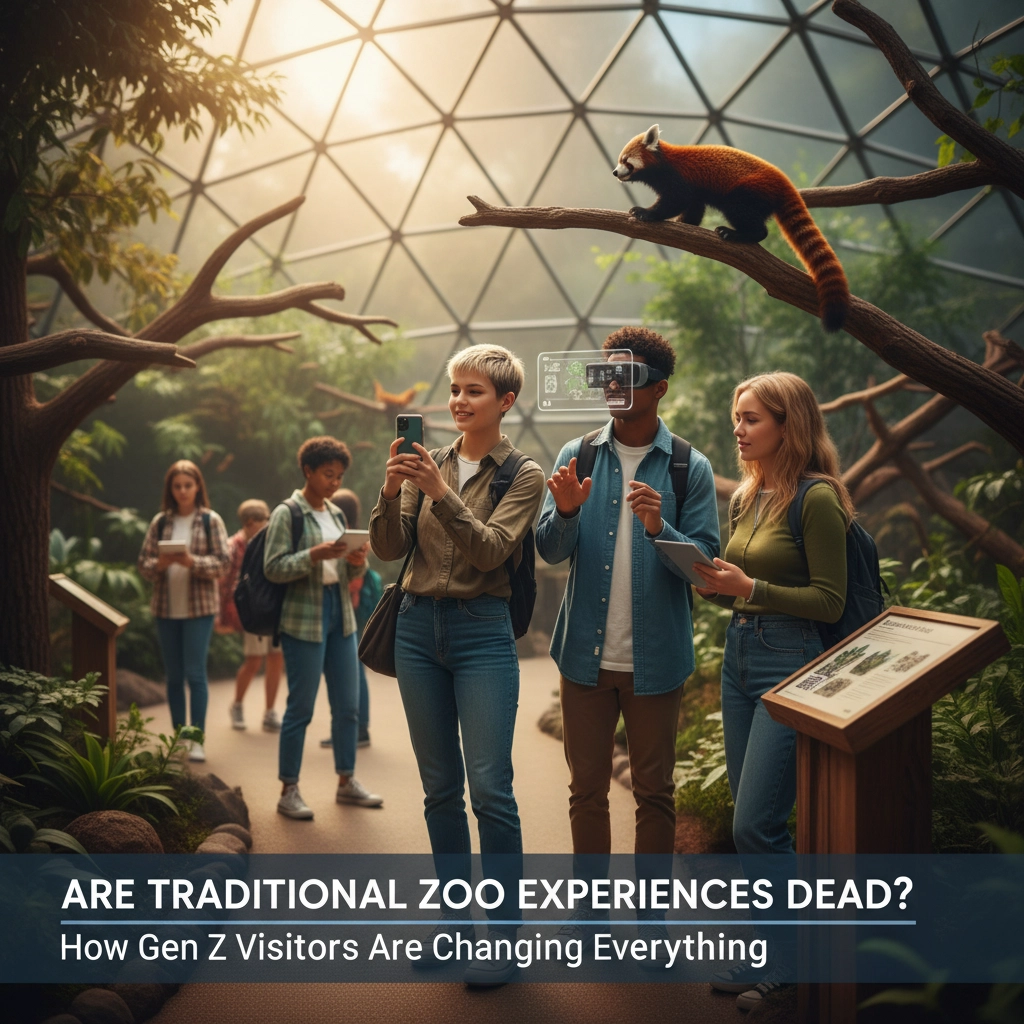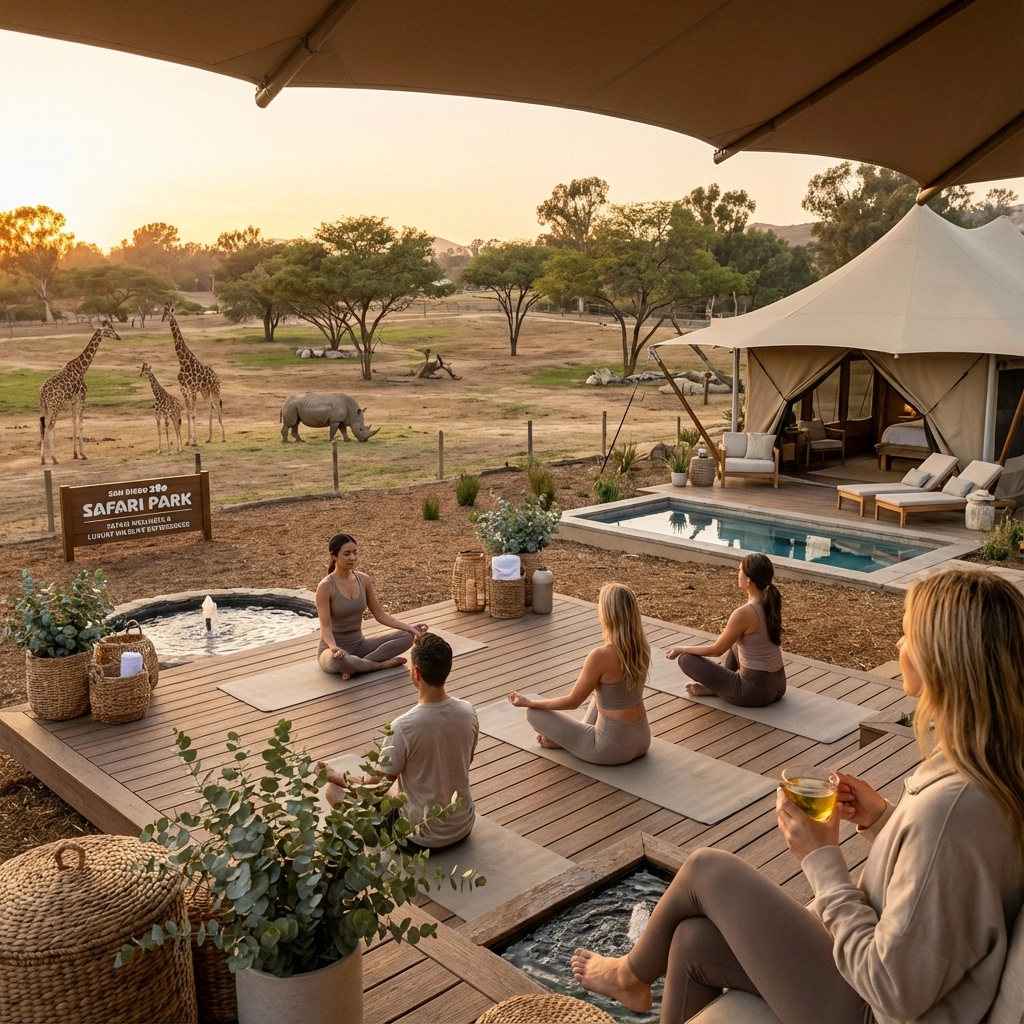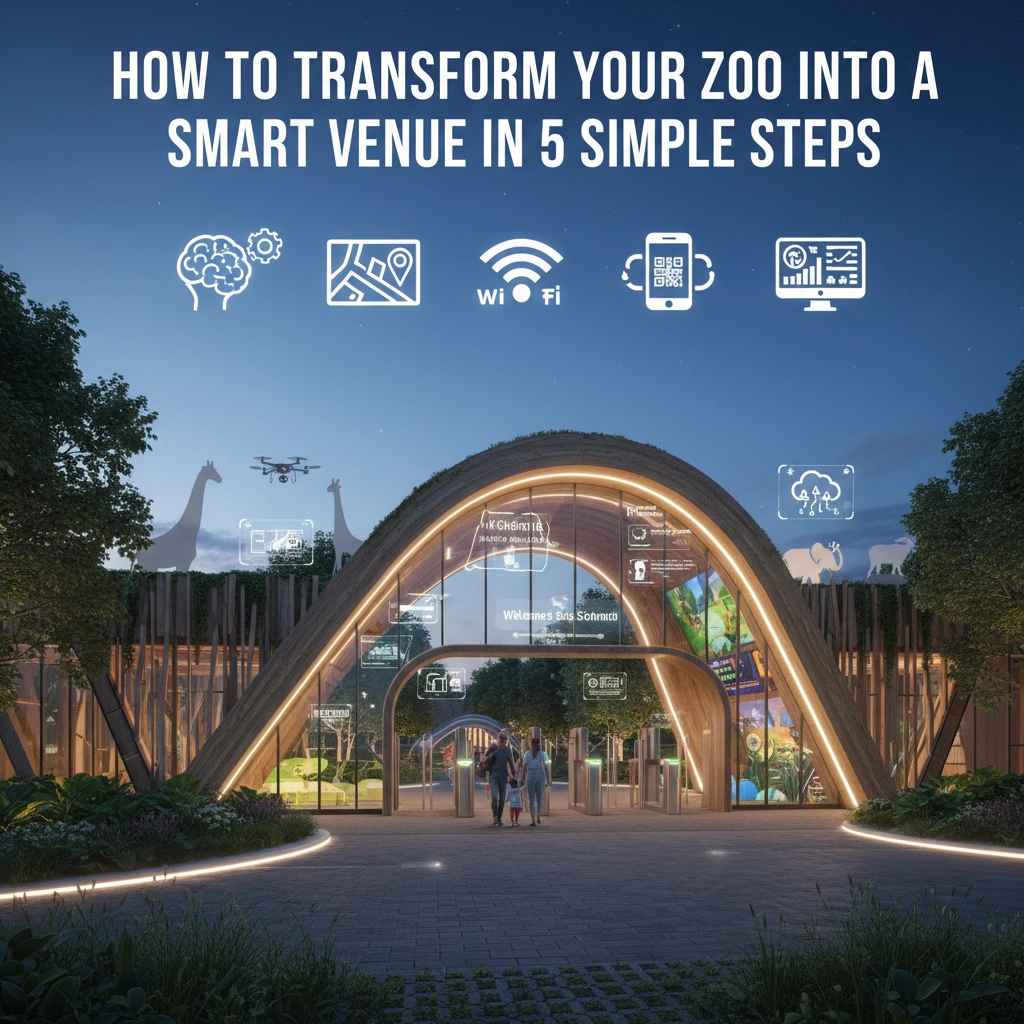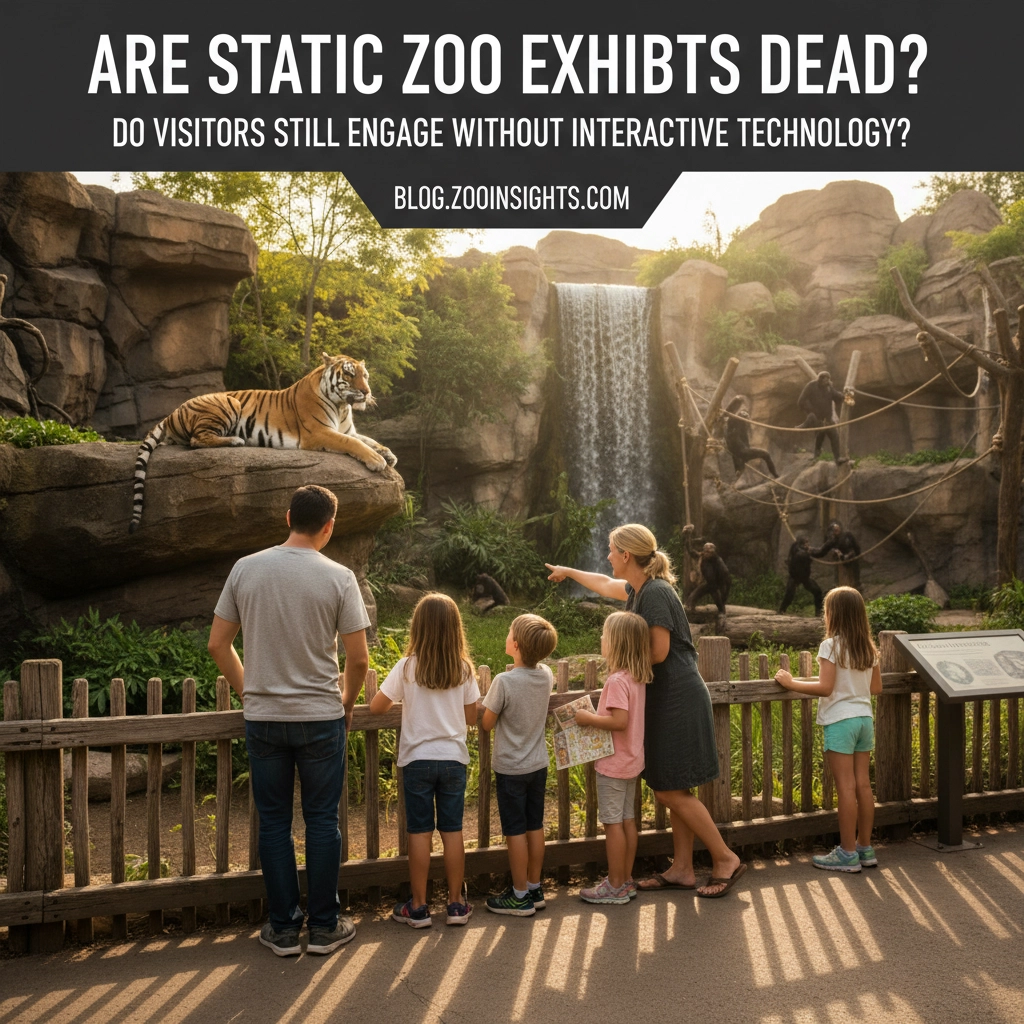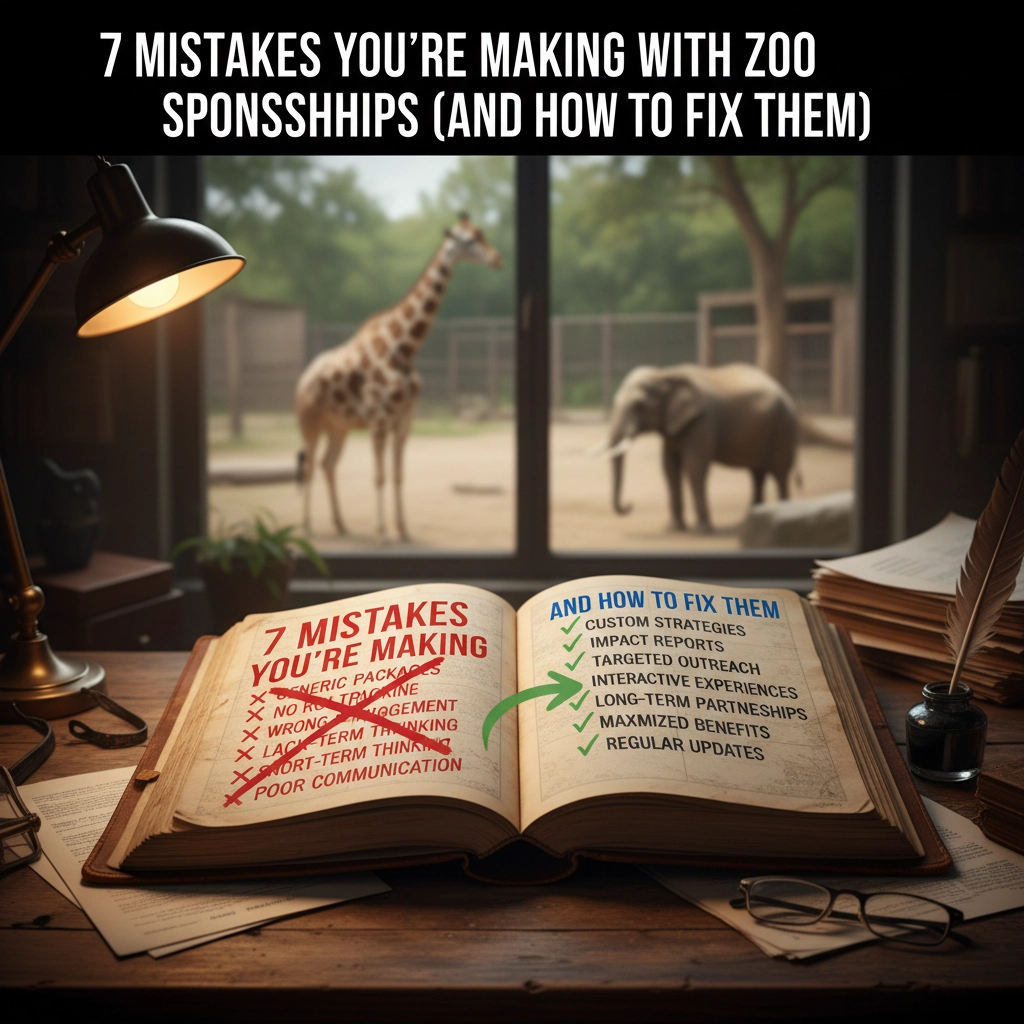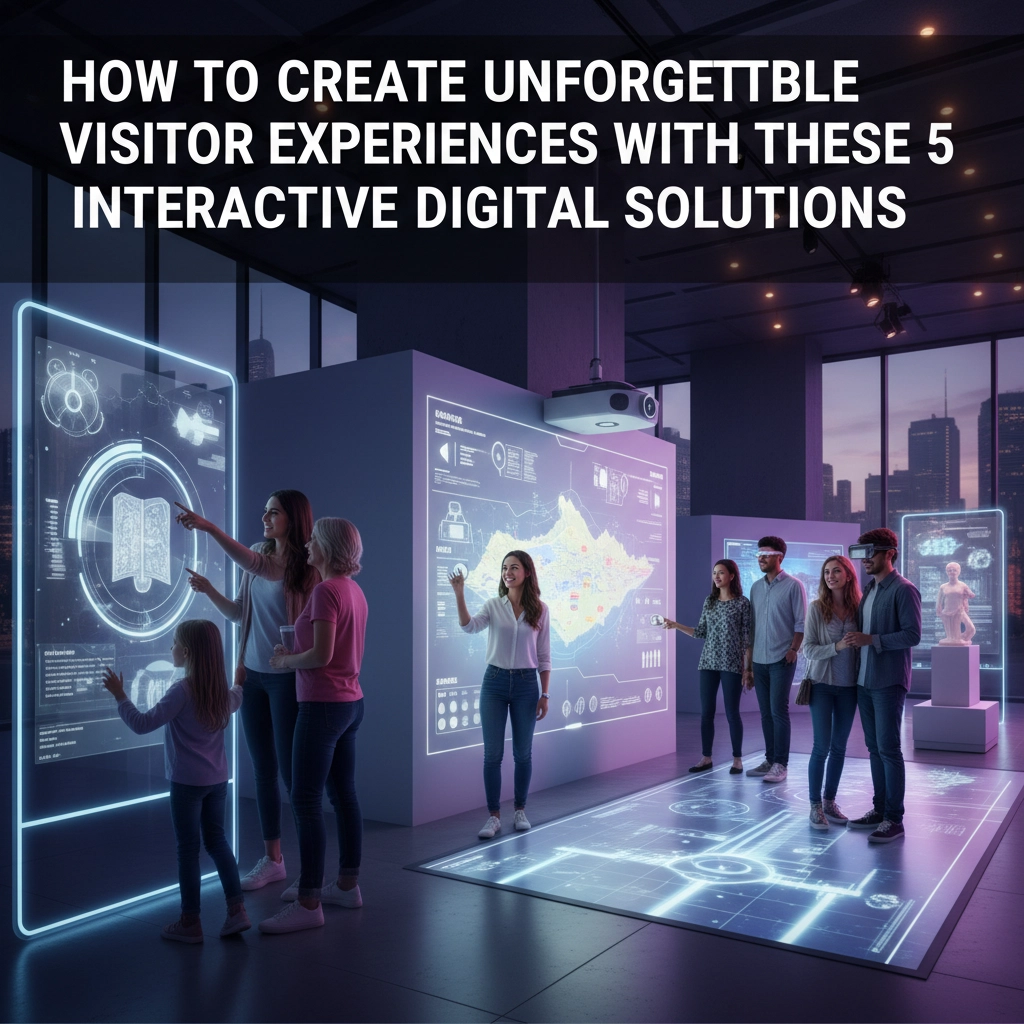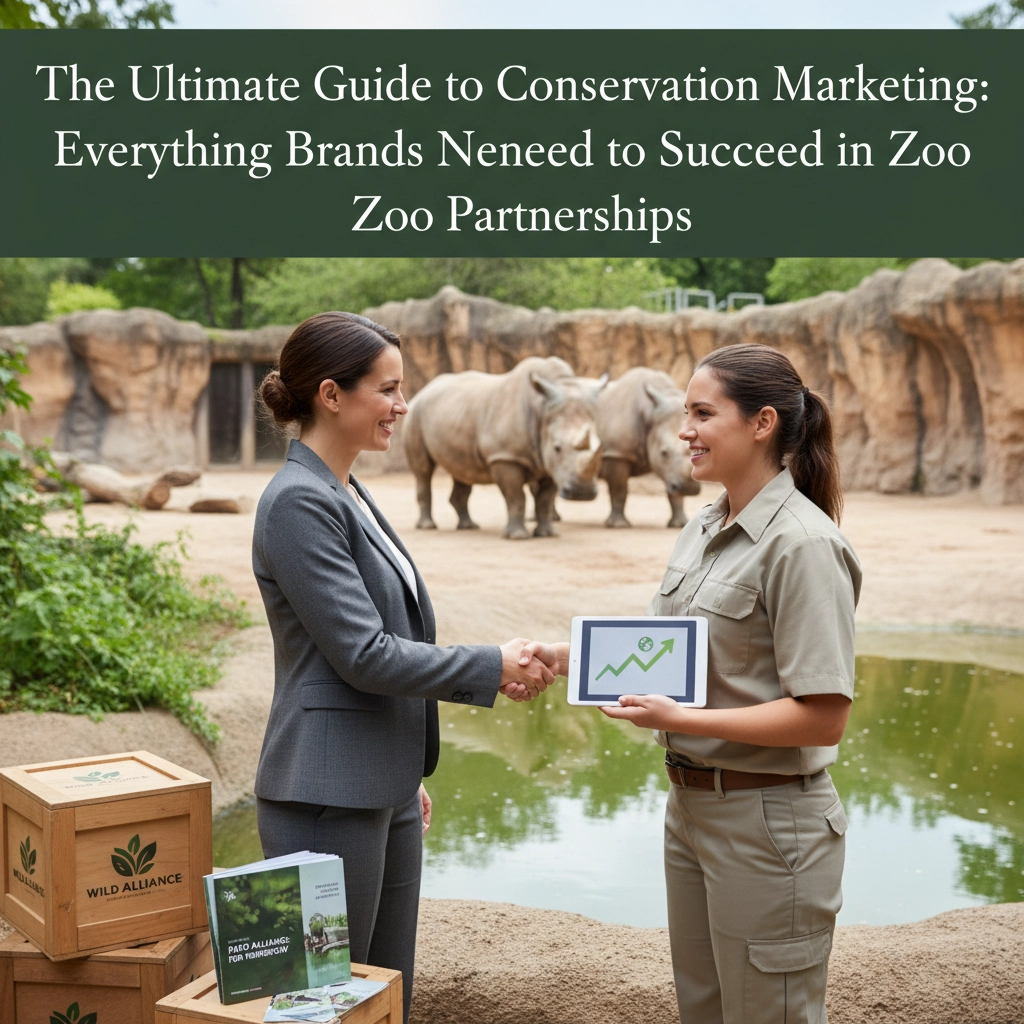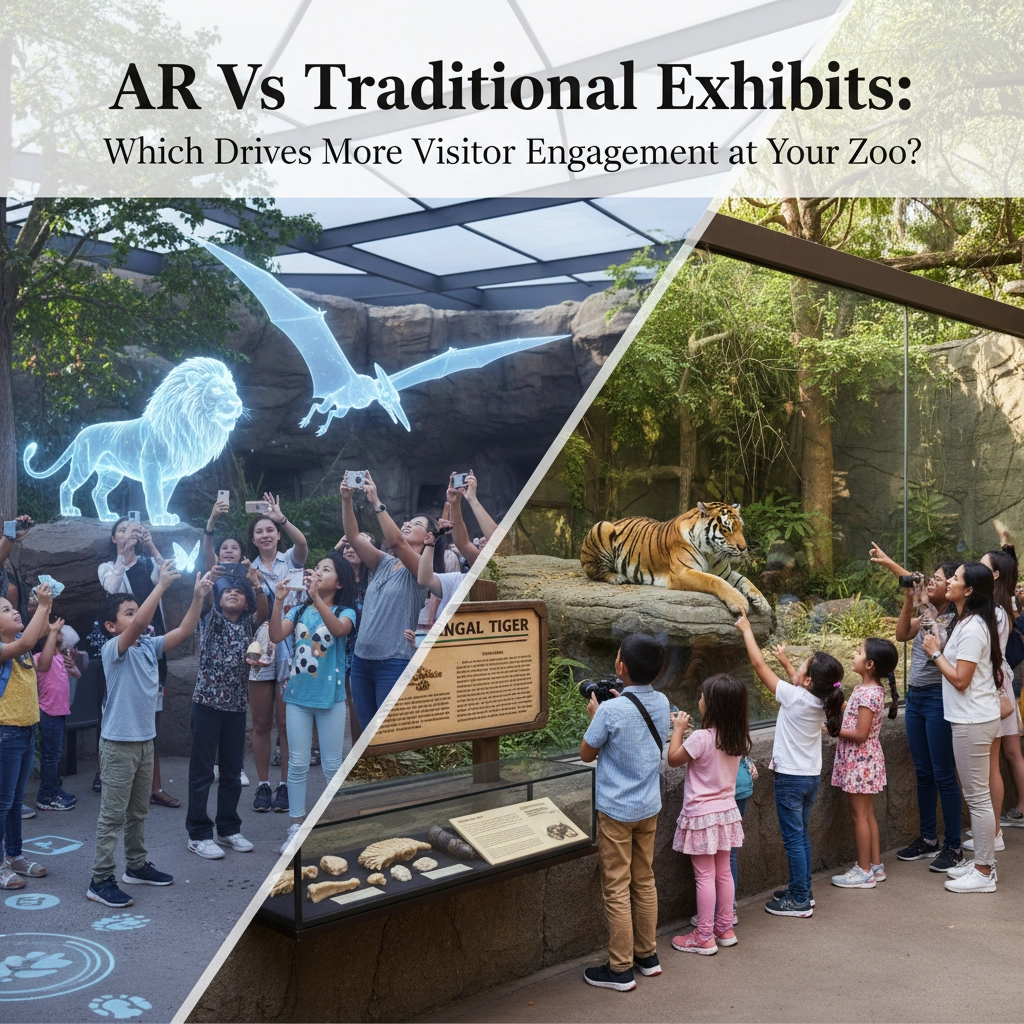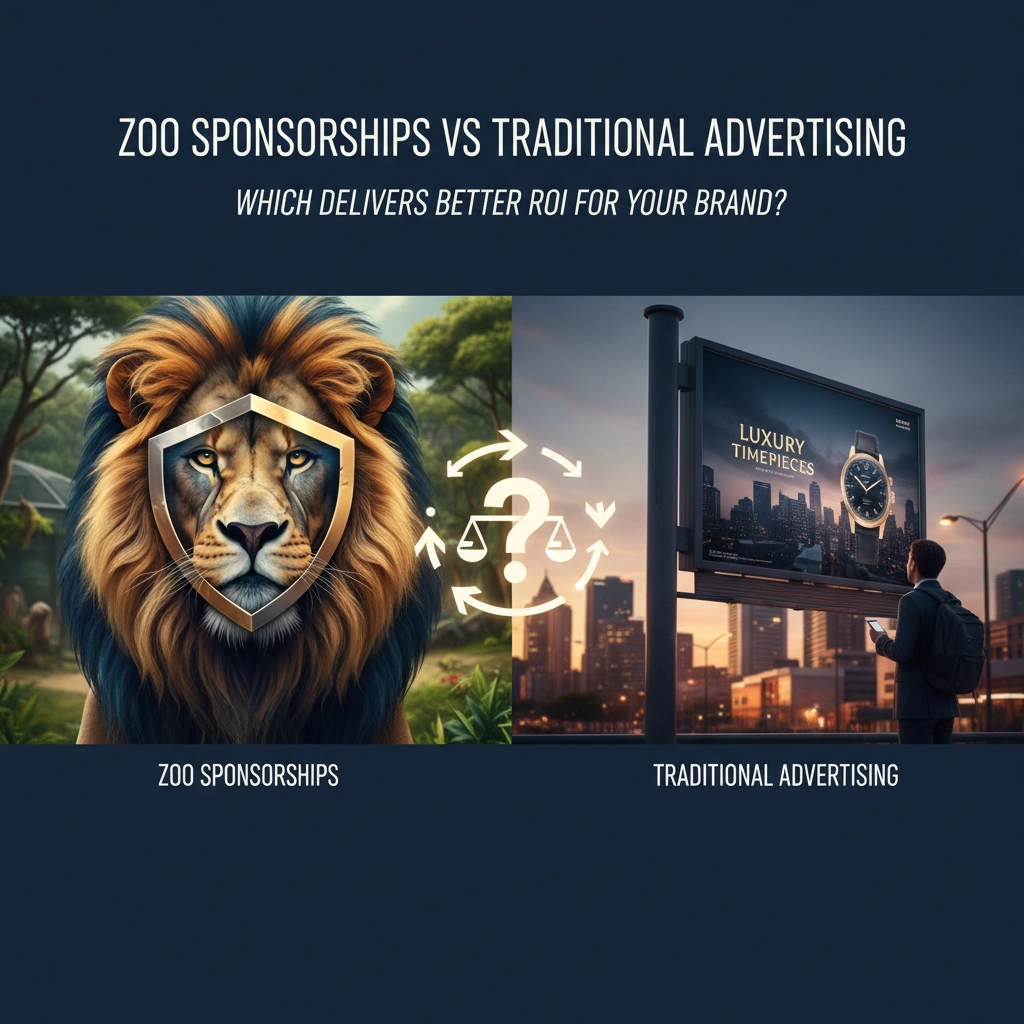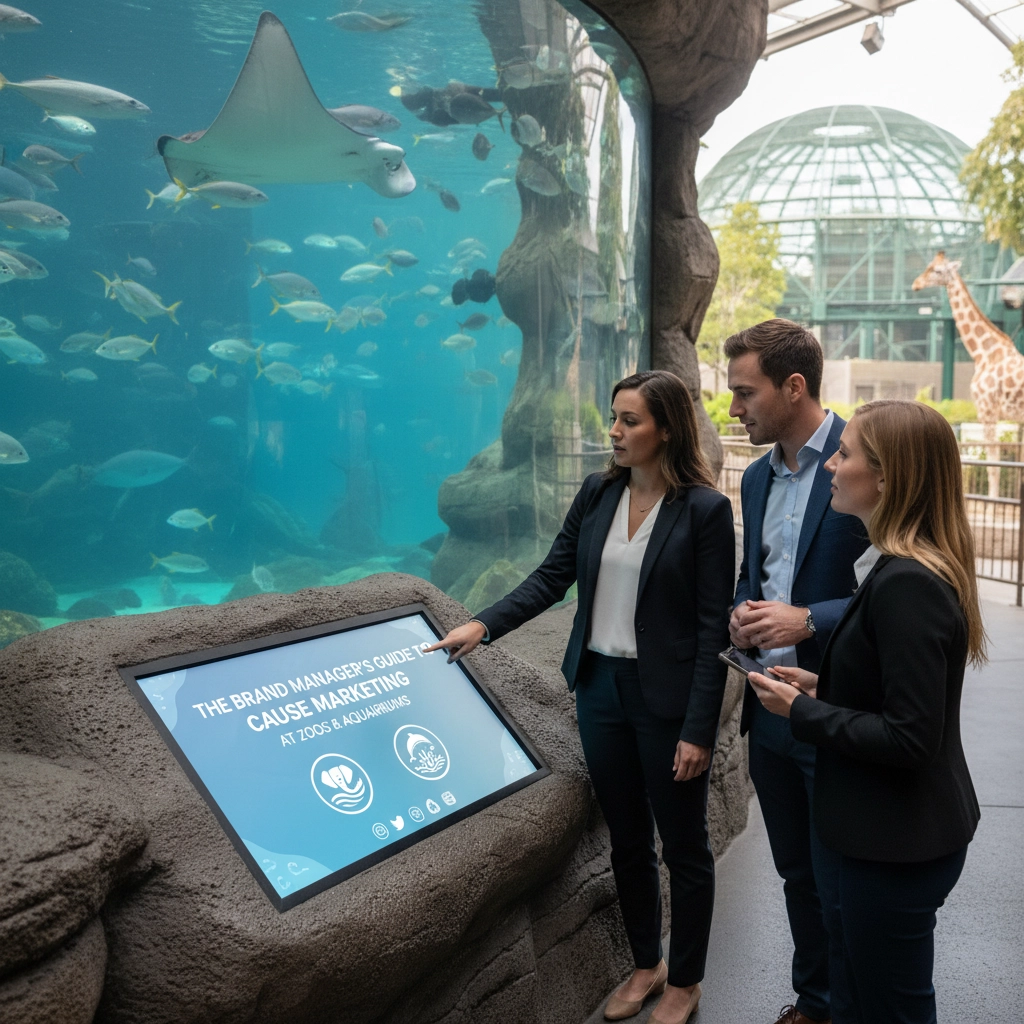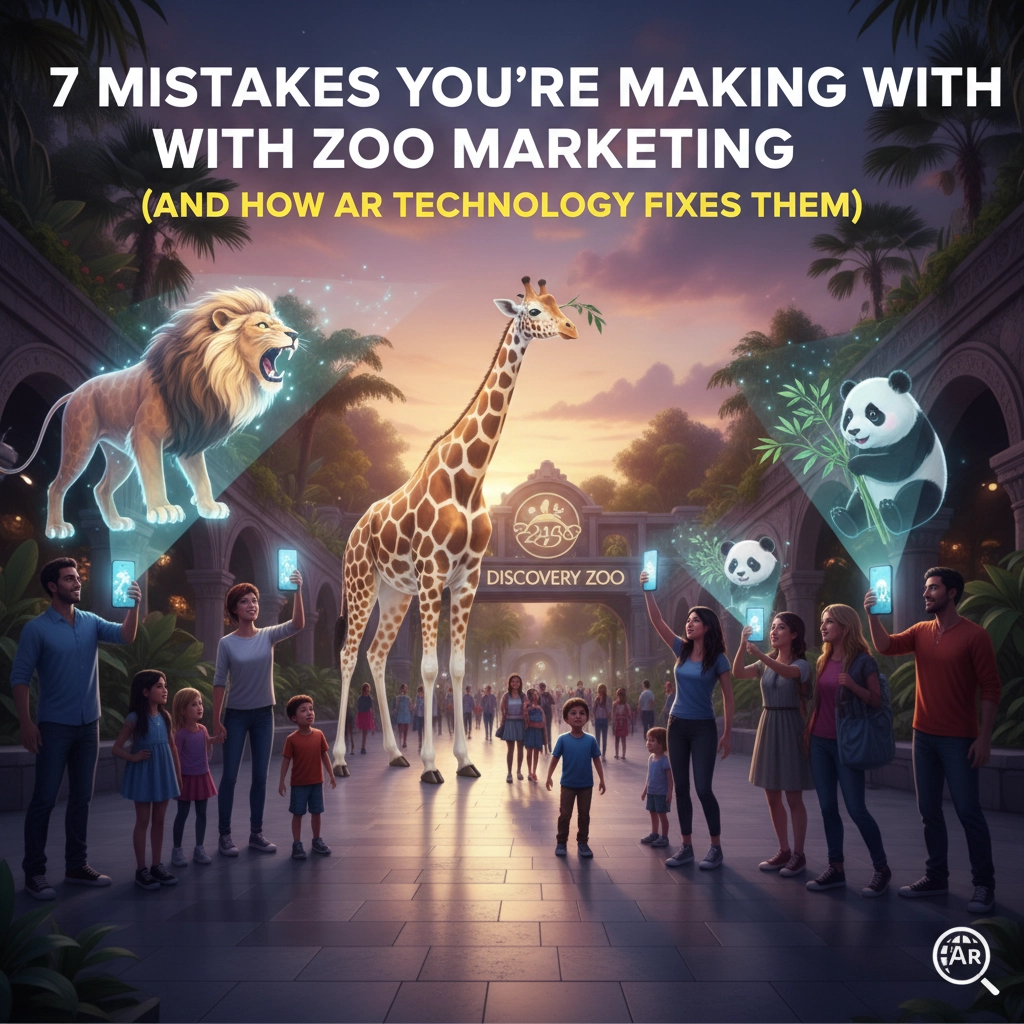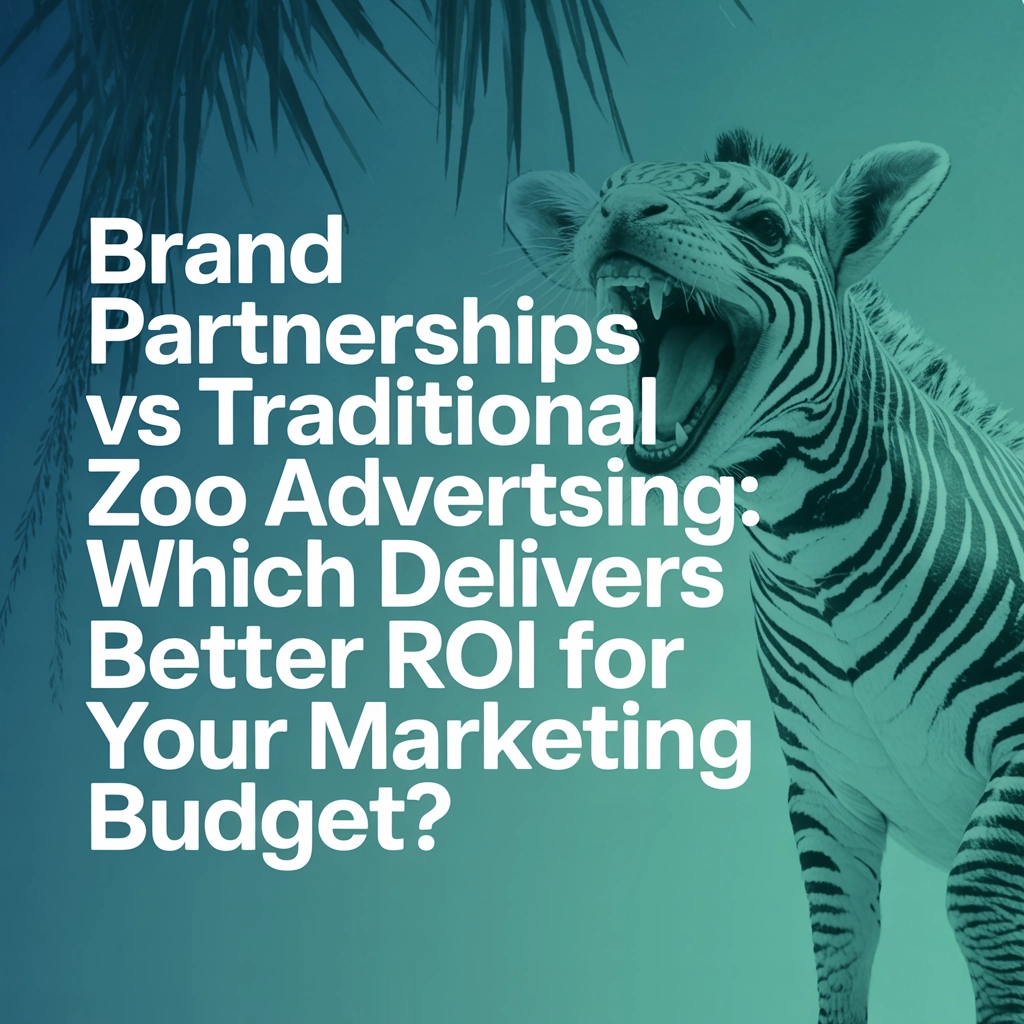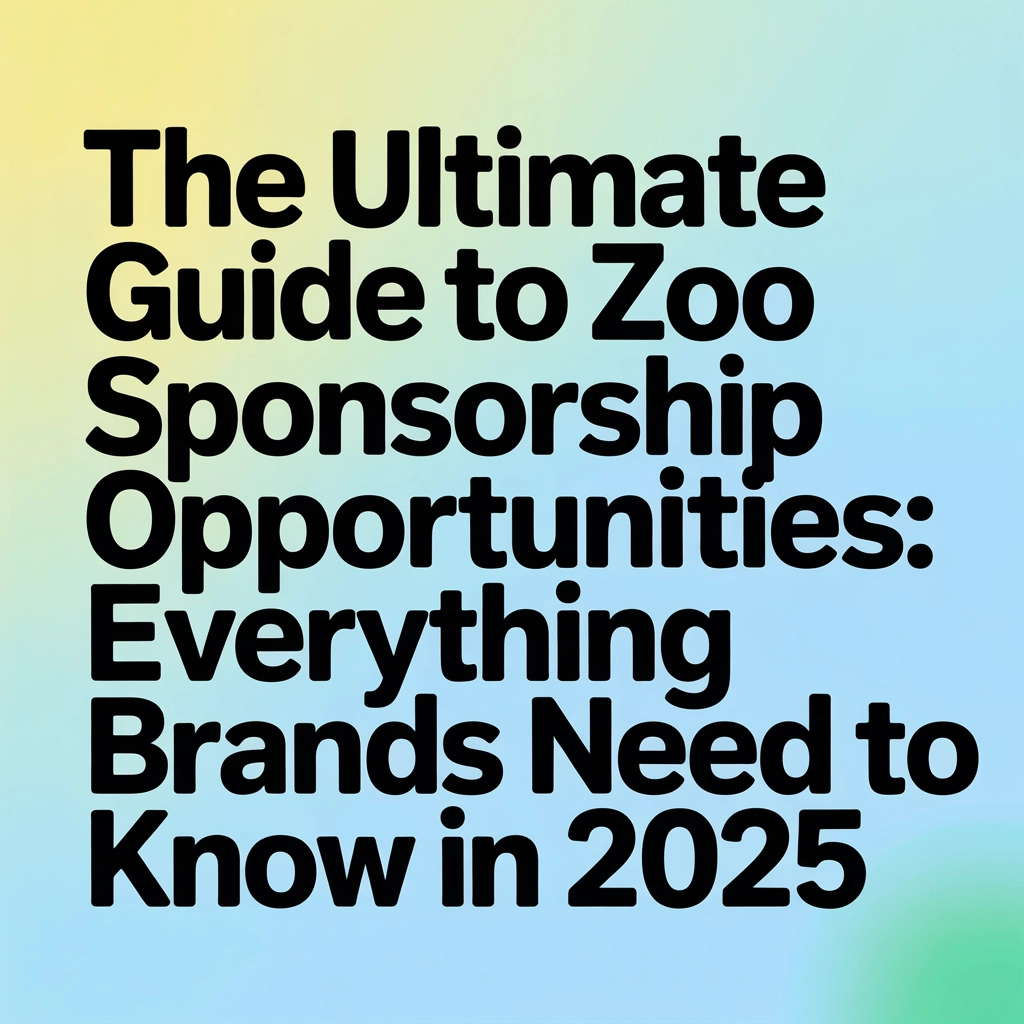The question isn't whether traditional zoo experiences are dead: it's how they're evolving at lightning speed to meet the expectations of the most socially conscious generation in history. Gen Z visitors, born between 1997-2012, are reshaping everything from exhibit design to marketing strategies, and smart zoo advertisers are taking note.
The Numbers Tell a Different Story
Despite predictions of declining interest, zoo attendance remains remarkably robust. Over 180 million visits are recorded at AZA-accredited zoos and aquariums annually in the United States. The industry showed impressive resilience, bouncing back from pandemic-related drops by summer 2021.
However, there's a subtle shift happening beneath these strong numbers. Aquarium attendance has been trending upward while traditional zoo attendance shows slight monthly declines. This pattern reveals something crucial about evolving visitor preferences.
What Gen Z Actually Wants From Zoo Experiences
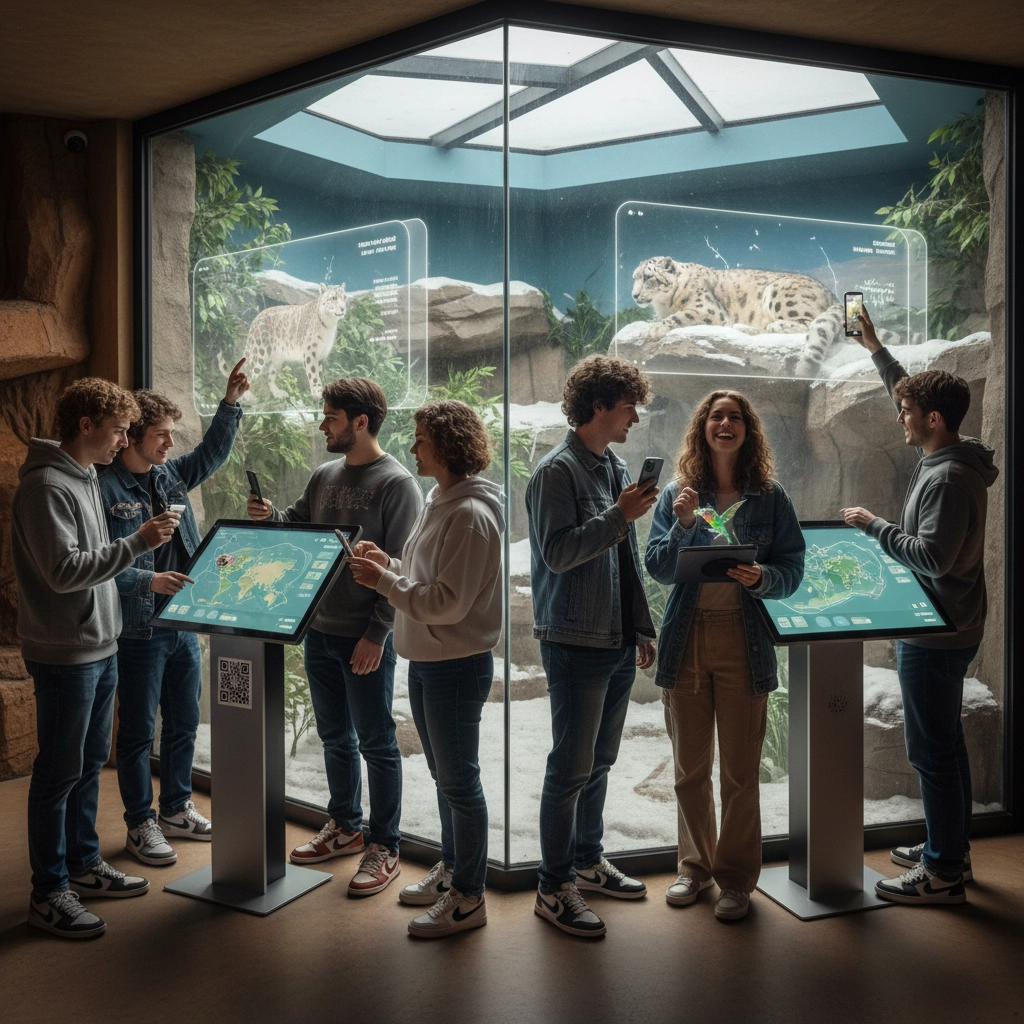
Gen Z visitors bring dramatically different expectations than previous generations. Research on millennials: Gen Z's immediate predecessors: reveals significant shifts in attitudes toward animals in professional care. These younger visitors demonstrate:
Heightened Animal Welfare Awareness
Every aspect of animal care is scrutinized. Gen Z visitors can spot signs of animal distress and will call it out on social media instantly. They expect transparency about animal welfare practices and want to see evidence of positive animal experiences.
Authentic Educational Experiences
Entertainment-only attractions don't cut it anymore. Gen Z craves meaningful learning opportunities that connect animals to broader conservation efforts. They want to understand their role in protecting wildlife and habitats.
Social Media-Worthy Moments
But here's the twist: they also want Instagram-perfect experiences. The challenge for zoos is creating authentic, educational moments that are also visually compelling and shareable.
How Zoos Are Adapting Their Experiences
Modern zoos recognize that visitor experience and animal welfare have become inextricably linked. Any signs of animal suffering can completely counter conservation messaging, making traditional "entertainment-first" approaches obsolete.
Interactive Technology Integration
Smart zoos are leveraging AR and VR technologies to create immersive experiences that satisfy Gen Z's digital native expectations while respecting animal welfare. QR codes linking to conservation apps, augmented reality animal information overlays, and virtual habitat explorations are becoming standard.
Conservation-Focused Storytelling
Instead of simply displaying animals, successful zoos now craft compelling narratives around conservation success stories. Each exhibit tells a story about human impact, conservation efforts, and visitor empowerment.
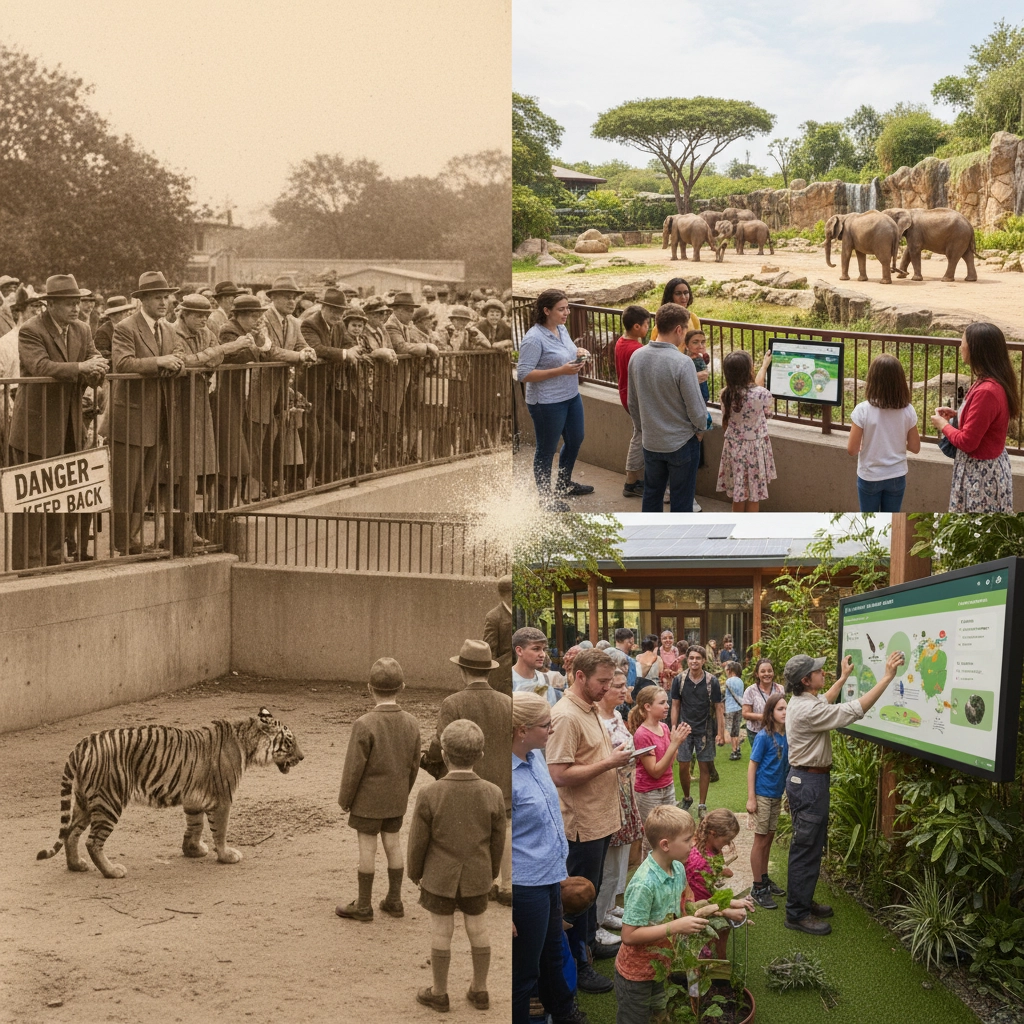
Authentic Animal Interactions
Research shows that live animal interactions actually increase positive attitudes toward species and enhance perceptions of zoo animal welfare among younger visitors. However, these interactions must feel authentic and educational rather than performative.
The Marketing Revolution in Zoo Advertising
For Zoo Media and other advertising professionals, these shifts present both challenges and opportunities. Traditional marketing approaches are being completely reimagined.
Social Media Strategy Overhaul
Gen Z visitors consume content differently. They expect:
- Behind-the-scenes content showing animal care
- Real-time updates on conservation projects
- Interactive polls and Q&As with zookeepers
- User-generated content opportunities
- Transparent communication about challenges and successes
Cause-Driven Partnerships
Brand partnerships must align with conservation missions. Gen Z visitors will research and call out partnerships that seem inauthentic or purely commercial. Successful collaborations demonstrate genuine commitment to wildlife conservation.
Experiential Marketing Focus
Static advertising is being replaced by experiential campaigns that invite participation. Pop-up conservation workshops, citizen science projects, and community habitat restoration events create deeper engagement than traditional advertising ever could.
Technology as the Great Connector
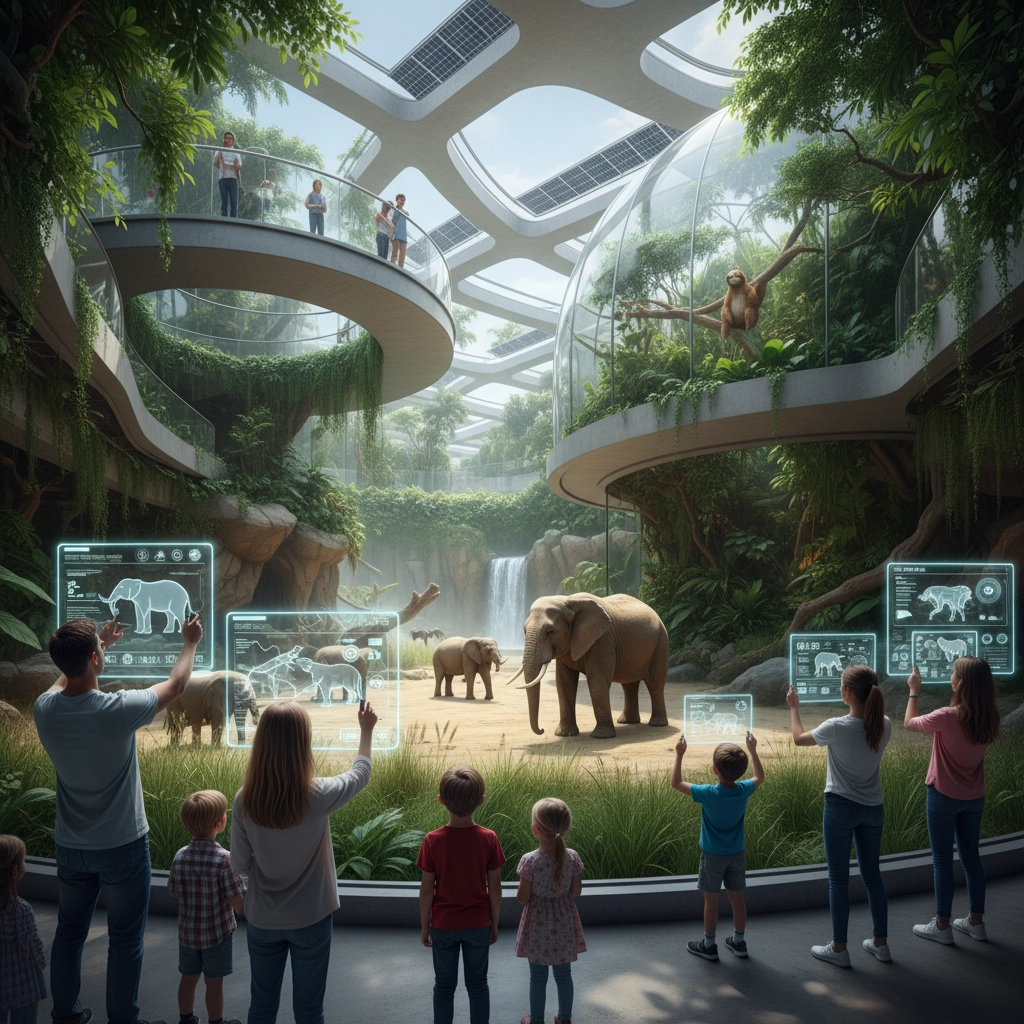
The "visitor effect": how zoo visitors impact animals: has become a crucial consideration in modern zoo design and marketing. Gen Z visitors want to understand this dynamic and see how their presence contributes positively to animal welfare.
Digital Integration Solutions:
- Mobile apps that track individual conservation impact
- Gamified conservation challenges
- Real-time animal behavior monitoring that visitors can access
- Digital donation platforms linked to specific conservation projects
Hybrid Physical-Digital Experiences:
- QR-code activated animal stories
- Augmented reality habitat overlays
- Virtual reality conservation simulations
- Interactive digital walls showing real-time conservation data
Seasonal Patterns and Programming Adaptation
Despite technological innovations, some traditional patterns persist. Spring and summer remain peak visiting seasons, driven by weather and school schedules. However, programming during these periods has evolved significantly.
Popular exhibits still feature big cats, primates, elephants, and reptiles, but presentation approaches have transformed completely. These animals are now ambassadors for their wild counterparts, with detailed information about habitat loss, conservation efforts, and visitor impact opportunities.
The Advertising Implications

For marketing professionals, these changes require fundamental strategy shifts:
Content Marketing Evolution
Traditional advertising copy focused on entertainment value must evolve toward impact-driven messaging. Successful campaigns now emphasize visitor empowerment and conservation outcomes.
Partnership Authenticity
Corporate partnerships must demonstrate genuine conservation commitment. Gen Z visitors research brand partnerships and will call out "greenwashing" instantly on social platforms.
Measurement Metrics Transformation
Success metrics are expanding beyond attendance numbers to include:
- Social media engagement rates
- Conservation program participation
- Return visitor rates
- User-generated content volume
- Brand authenticity perception scores
Future-Proofing Zoo Experiences
The evidence clearly shows that traditional zoo experiences aren't dying: they're evolving rapidly. Successful zoos are embracing this transformation rather than fighting it.
Key Success Factors:
- Transparent animal welfare communication
- Technology integration that enhances rather than replaces animal encounters
- Authentic conservation storytelling
- Interactive educational opportunities
- Social media optimization without compromising authenticity
Looking Ahead: The New Zoo Marketing Landscape
Gen Z visitors are forcing the industry toward authenticity, transparency, and genuine conservation impact. This creates unprecedented opportunities for advertisers who understand these values and can authentically connect brands with conservation missions.
The zoos thriving in this environment treat marketing as education and entertainment as a byproduct of meaningful experiences. They're building communities around conservation rather than simply attracting customers to attractions.
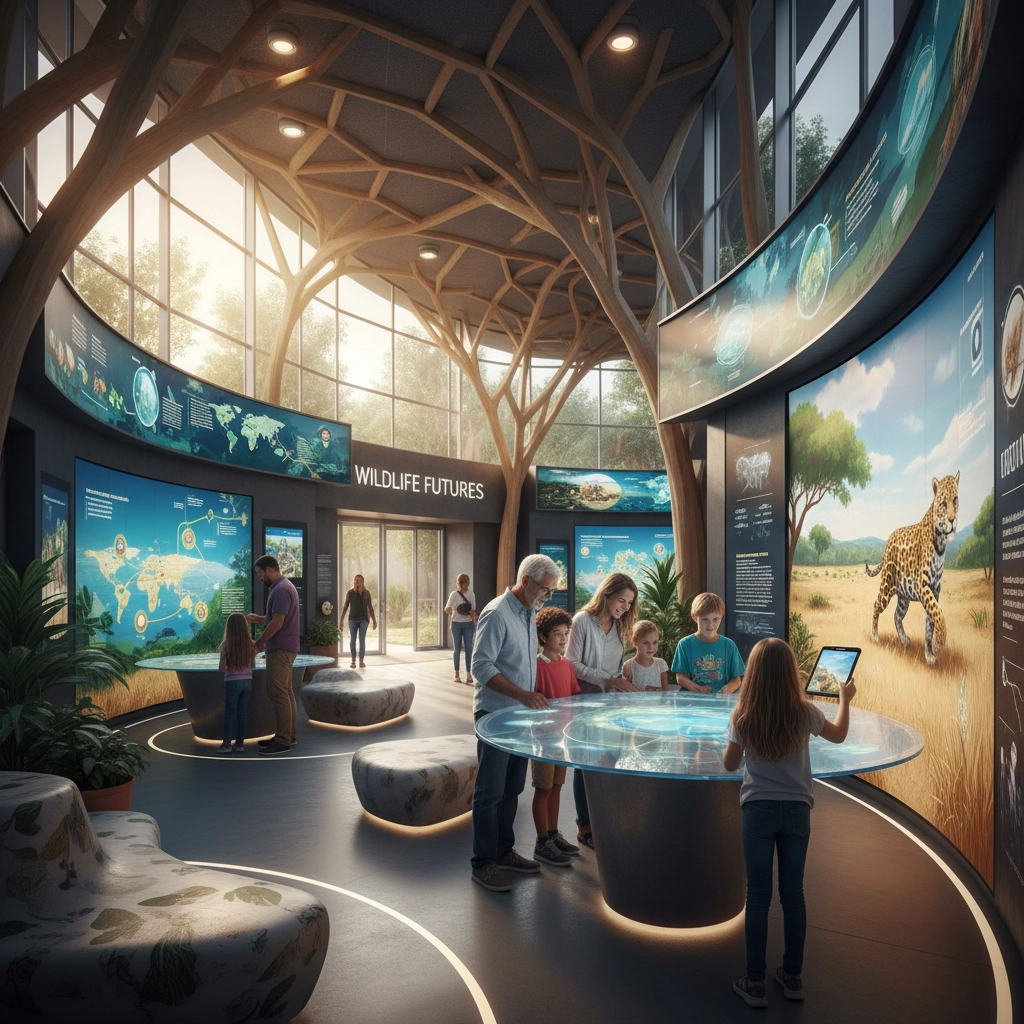
Ready to revolutionize your zoo marketing strategy? At Zoo Media, we specialize in creating authentic, conservation-focused campaigns that resonate with Gen Z visitors while driving real business results. Our team understands the delicate balance between engagement and authenticity that today's zoo advertising demands.
Contact our AI Receptionist at +1 (323) 676-0621 or visit www.dakdan.com to discover how we can help your zoo connect with the next generation of conservation-minded visitors.
Dan Kost, CEO leads our team in developing cutting-edge advertising solutions that respect both animal welfare and modern visitor expectations. Let's create something meaningful together.
#ZooMarketing #GenZ #ConservationMarketing #DigitalAdvertising #Innovation #Branding #Strategy #Marketing #AdvertisingAndMarketing

